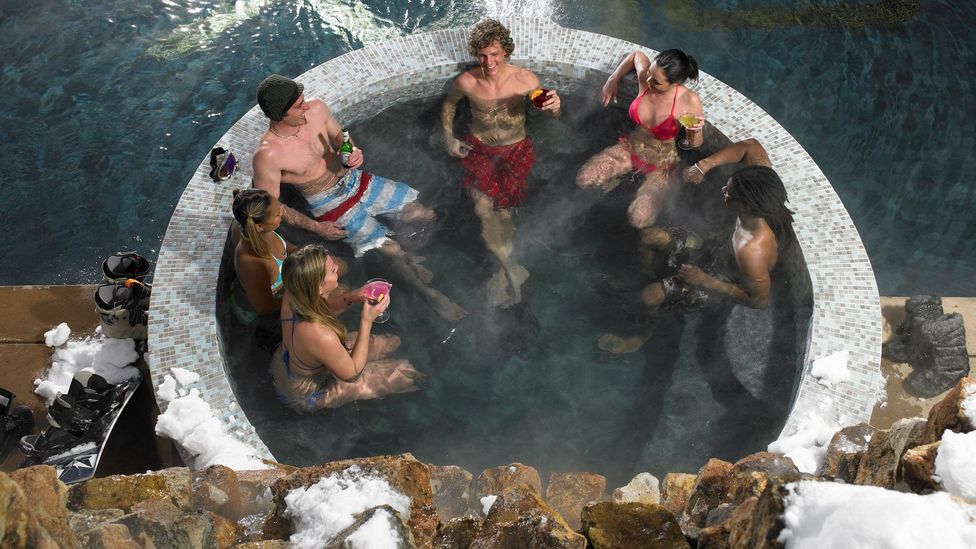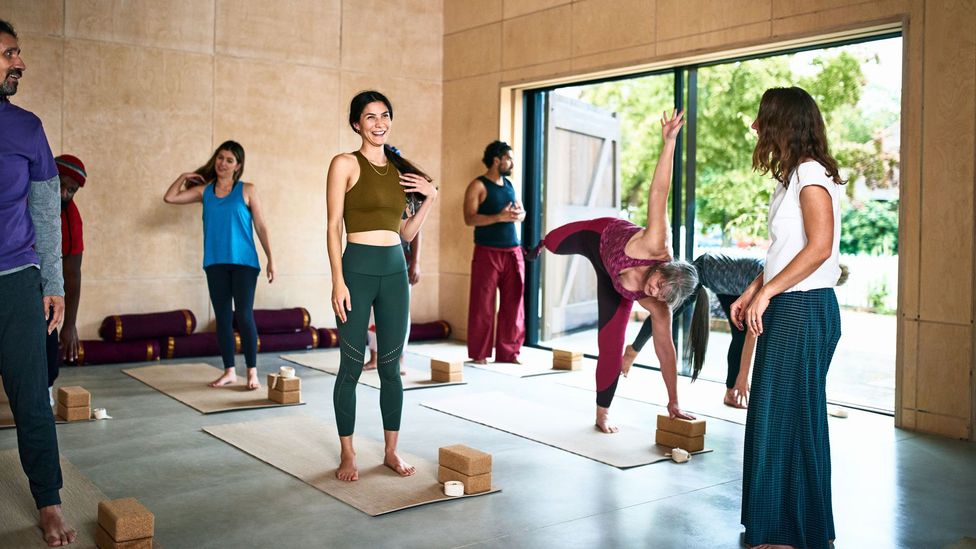In April 2022, six months after he first joined a London-based start-up, Jamie found himself on a five-day corporate retreat in France. At first, he was excited at the prospect of an all-expenses paid trip abroad. But the retreat turned out awkward, even unnerving.
“The first day, we took part in lots of trust exercises and icebreakers with one another, which was incredibly cringeworthy,” says 23-year-old Jamie. “But the worst part was a brainstorming session where I was paired with a really senior member of the team and had to throw out ideas for how to grow the business.”
He was assured it was informal – his boss was wearing shorts and had a glass of red wine in his hand – but as a junior member of staff, Jamie felt caught off guard and nervous. “I was worried I’d end up saying the completely wrong thing, and it would come back to haunt me further down the line.”
The time away did help him strike up some closer relationships with a few colleagues, he says. The small team works at least three days per week remotely, and it was their first chance to get together socially in person. But he was glad to get home and away from the pressure of spending 24/7 with his new boss.
Although some companies engaged in corporate getaways and retreats prior to the pandemic, that interest has soared as Covid-19 regulations have eased, according to some industry experts. At Canada-based firm Moniker, which has organised corporate retreats for companies including Uber, Shopify and PayPal, managing partner Sean Hoff says enquiries have “surged” since restrictions lifted. “2022 was our busiest year ever. That coincides with what we heard from competitors, too. We were struggling to keep up with demand.”
Much of this, says Hoff, was driven by companies that had switched to hybrid- or remote-working patterns during lockdowns, and realised colleagues had spent hardly any time together in-person. “A lot of these people may interact online on a day-to-day basis, but they’re only seeing an avatar or a name on screen. This is a chance to bring people together in person, and create a chance to connect at least once per year.”

Some employees say things can get awkward – and very unprofessional – when alcohol is involved (Credit: Getty Images)
Such corporate getaways are generally well-intentioned. Leadership teams are often looking to treat hardworking staff to a nice break, or create opportunities to foster collaboration in a more picturesque setting. But that aim isn’t always the reality for employees required to attend. For some workers, retreats can be uncomfortable, anxiety-inducing or, at times, feel inappropriate. Some employees say that the post-Covid-19 rise of the corporate getaway isn’t a welcome development.
As firms organise these remote-era retreats, they’re taking many different approaches.
Some have stuck to more traditional getaways that bring staff together to do activities in a central location. In August 2021, fully-remote US marketing platform Rockerbox organised its first-ever retreat to build longer-term relationships among staff. They spent two days in New York going on a scavenger hunt, playing mini-golf and attending a Yankees baseball game. Other companies have opted for a more upscale approach: in 2022, Salesforce announced plans to open its own luxury ranch for staff in Santa Cruz, California, to bring together remote employees via guided nature walks, yoga, group cooking classes and meditation workshops.
Regardless of the approach, many companies are investing in the idea of offsite bonding opportunities for their workers. Hoff agrees. “Anecdotally, from the CEOs we talk to, it helps improve morale and it's a helpful culture-building tool.” It can also reduce turnover, he says, citing testimonials from employees that have said they were considering quitting but changed their mind after being reminded of how much they love working at a company while on a retreat.
But although they can have lots of benefits, many employees have long felt spending a few days cooped up with work colleagues around the clock isn’t a positive experience.
For some workers, retreats can be uncomfortable, anxiety-inducing or, at times, feel inappropriate
In 2014, when the London-based digital agency where Corinne worked said they’d be taking all 30 staff members away for a long weekend, she was excited. Their bosses told staff they’d have strategy meetings during the day, and – although remote working wasn’t yet in place – plenty of chances to bond with the rapidly growing team in the evenings. “I loved the idea,” says Brighton-based Corinne, now 42.
But when they arrived at the rented manor house in south-west England, they were told for the first time that they’d be sharing bedrooms with colleagues to keep costs down. For Corinne’s newly hired assistant, that meant sharing a room with a senior colleague she didn’t know well. “[My assistant] felt really uncomfortable,” says Corrine.
Then, although the days were full of structured meetings and workshops as promised, the alcohol-fuelled evenings felt completely different, she remembers, with team members behaving in ways she says wouldn’t have been acceptable within a professional setting. “I just thought it was so inappropriate,” says Corinne. “You just wouldn’t expect to attend a corporate retreat and see a culture like that. I look back on it now, and just think how weird it was.”
Being “asked” to attend these getaways can feel like being a kid being packed off to summer camp by their parents – with no real opportunity to decline the invite, says California-based psychotherapist and corporate coach Tess Brigham. “There's always that, 'I don't know if I want to see the VP in a Polo shirt', or see somebody who's supposed to be a leader dressed down or dancing or being goofy,” she says. “You don’t know if you’re going to have to take part in some silly game either, so there’s always that feeling of awkwardness.”

Many companies are trying to move towards more low-key gatherings, such as doing team yoga, or spending time outdoors (Credit: Getty Images)
As Corinne found, this can lead to blurred boundaries between the personal and professional, and leave employees feeling uncomfortable or even “invaded”, adds Sophie Bryan, founder of workplace-culture consultancy Ordinarily Different. She says much alcohol can trigger inappropriate behaviour or even conflict on these trips, while bosses or managers trying too hard to impress “can create a power dynamic” that inhibits employees to share honestly or participate at work. Those feelings can carry over even after workers return home.
Companies might be learning how to better utilize these retreats, however. Hoff says that even as the getaways tick up in a more remote-focused work world, there’s also more understanding of how they can quickly cross a line. “The majority we plan now are not about partying or going wild,” he says.
Instead, they tend to be focused on getting a bit of work done in the mornings and taking part in a far more diverse range of activities in the afternoon, he says. Moniker has organised everything from dragon-boat racing for a company in Singapore, to an adventure race based on the television show Survivor in Honduras. Most companies are also better attuned to the fact that not everyone loves a holiday with their colleagues, he adds, and make these retreats “totally optional”, or sometimes offer to pay for partners to join.
Still, not everyone is convinced. For Corinne, having since left the agency to start her own business, she now sticks to taking her team out for a long lunch, rather than a weekend away. “Then we go home,” she laughs. “That’s enough.”
